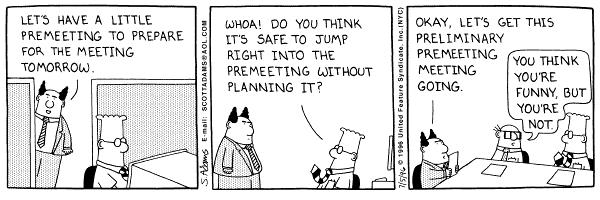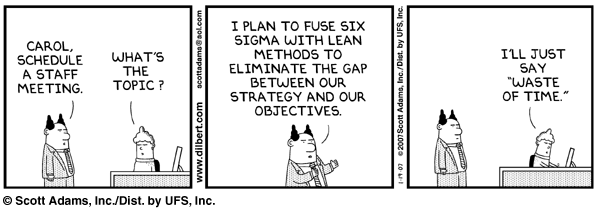
If there are two components which should be tracked meticulously in every meeting “Time & Focus” top the list. When we lose track of these two components is when meetings fall apart and after endless hours of debating and discussing an issue no measurable progress is made towards the goal. To keep track of these components special attention needs to be paid to them to ensure that you have effective meetings.
Keeping Time: Time encapsulates both, being on time to your meetings and running them in such a manner that they start and end according to the time stated in the pre-meeting agenda. A few pointers on enforcing time during a meeting are;
- If you are chairing the meeting make sure that you reach the meeting on time. It is your responsibility to set an example about punctuality. By the same token if you are supposed to sit in on a meeting also make sure that you arrive on time. Even if your company has a culture of being late for meetings you need to start with yourself. Punctuality is essential and a defining aspect of effective organizations. If you have a habit of being late for meetings I highly suggest that you make a concentrated effort to rectify this.
- Assign someone to keep track of time. Reminders can be provided at checkpoints, reminding the participants how much time is left to keep everyone focused on completing the required agenda in the stipulated period of time. Keep track of how many meetings go into overtime. This can be a key metric to analyzing and calculating the effectiveness of your meetings for future optimization.
- For participants who reach meetings late you do not need to do a re-cap unless critical. You can fill the participants in after the meeting has concluded. Demerit points can be assigned to individuals who are continuously late. This can be included in the individuals performance review and needs to be taken seriously.
Keeping Focus: Losing focus during a meeting is quite easy. Any off-topic comment can send the meeting on a completely new tangent which will have a negative impact on both the timing and quality of the meeting. A few pointers on enforcing focus during a meeting are;
-
Use your agenda pointers to help keep track of the meeting’s progress. When discussing an agenda point, allocate a certain action to that point once discussed and cross it off the list. This will help bring closure to the point and make it harder to come back to discuss the point again.
-
Ask only relevant questions during the discussion. When an off-topic comment or question is asked it has the ability to completely derail the meeting from the agenda. If you are the facilitator of the meeting do your best to keep off- topic questions to the minimum.
-
Keep distractions to the minimum. There should be no cellphone conversations allowed during the course of the meetings. This has to be taken seriously to remain focused on reaching the goal in the time allocated.
-
If the meeting is scheduled to take 2 hours do your best to incorporate at least one break for 5 – 10 minutes to keep participants focused and attentive.
Once you are able to bring these two key components under control you will enjoy shorter and more effective meetings.

